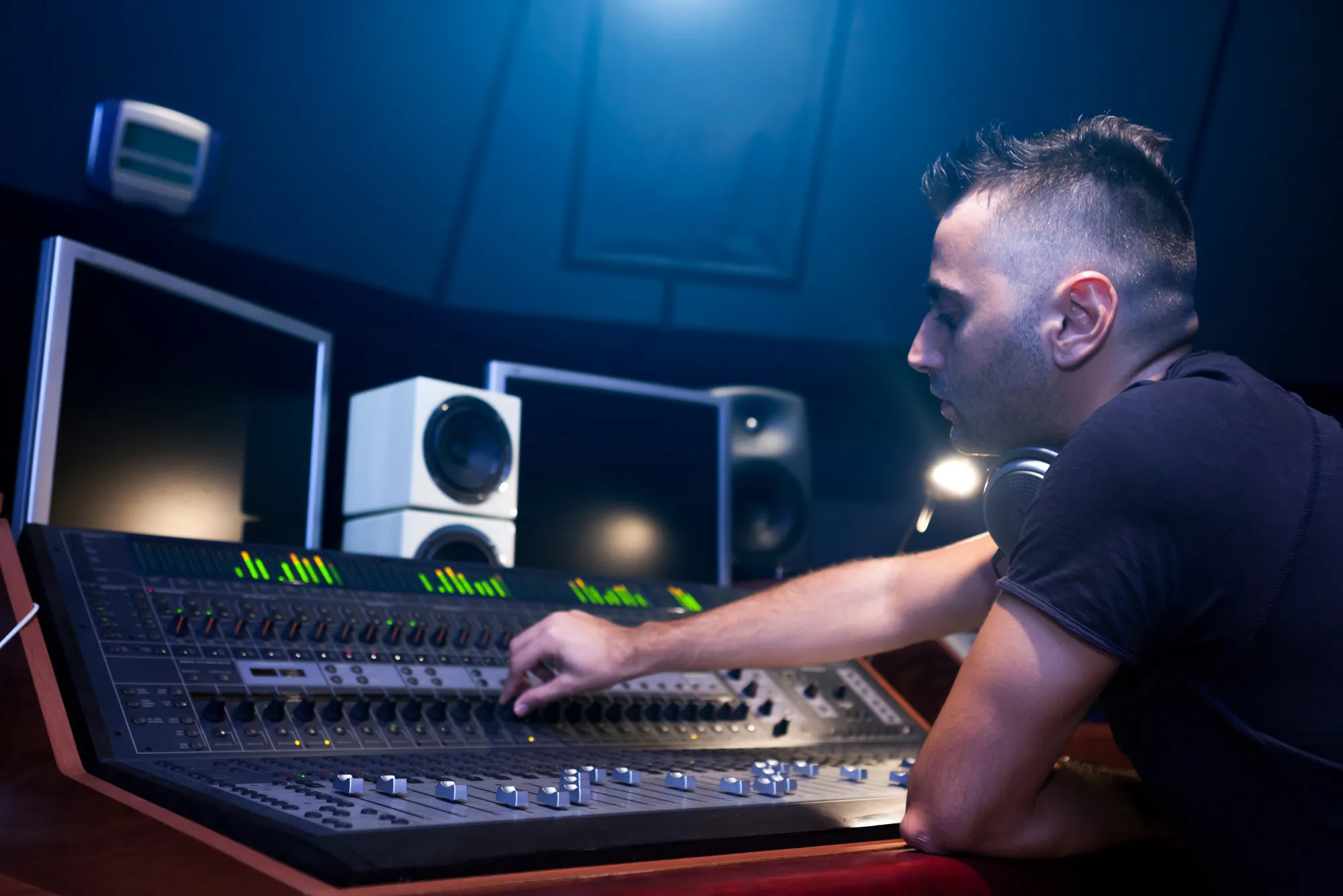Choosing the right institute for live sound engineering can be a pivotal decision for aspiring audio professionals in India. With the growing demand for skilled sound engineers in concerts, events, and media production, selecting a reputable institute that offers quality education and practical experience is crucial. This guide will walk you through the essential factors to consider when choosing the best live sound engineering in Delhi, India, ensuring you make an informed decision that aligns with your career goals.
Why Live Sound Engineering Matters
Live sound engineering is a specialized field that involves managing audio for live performances, such as concerts, theater productions, and corporate events. Professionals in this field must master equipment like mixing consoles, microphones, and sound systems while understanding acoustics and audience experience. A quality education from a reputable institute equips you with the technical skills, practical knowledge, and industry connections needed to succeed.
India’s vibrant entertainment industry, particularly in cities like Delhi, offers immense opportunities for skilled sound engineers. However, the quality of training varies significantly across institutes. Choosing the right one can set you apart in this competitive field. Here’s how to make the best choice.
Key Factors to Consider
1. Accreditation and Reputation
When researching institutes for live sound engineering, prioritize those with recognized accreditation or affiliations with industry bodies. Accreditation ensures the curriculum meets professional standards. Look for institutes with a strong reputation, evidenced by alumni success stories, industry partnerships, or endorsements from well-known sound engineers.
For example, institutes in Delhi often collaborate with event companies or music festivals, providing students with real-world exposure. Check online reviews, testimonials, and alumni feedback on platforms like LinkedIn or industry forums to gauge the institute’s credibility. A reputable institute will have a track record of producing graduates who work in top-tier events or studios.
2. Curriculum and Course Structure
A robust curriculum is the backbone of any live sound engineering in Delhi, India program. The course should cover essential topics like audio signal flow, mixing techniques, microphone placement, and digital audio workstations (DAWs). Advanced programs may include modules on live sound reinforcement, acoustics, and system design.
Look for institutes that balance theory with hands-on training. Practical sessions, such as working with live sound consoles or setting up audio for mock events, are critical for skill development. Some institutes offer specialized workshops or masterclasses with industry professionals, which can enhance your learning experience.
Ensure the curriculum is up-to-date with current industry trends, such as digital mixing consoles (e.g., Yamaha CL Series or DiGiCo) and software like Pro Tools or Ableton Live. A forward-thinking institute will prepare you for modern technologies used in live events.
3. Faculty Expertise
The quality of instructors can make or break your learning experience. Research the faculty’s background to ensure they have real-world experience in live sound engineering. Instructors who have worked on major concerts, festivals, or theater productions bring practical insights that textbooks can’t provide.
In Delhi, some institutes employ faculty who have worked with renowned artists or at high-profile events like music festivals or award shows. Check the institute’s website for faculty bios or ask during an inquiry call. A faculty with diverse experience ensures you learn both technical skills and industry nuances, such as handling high-pressure live events.
4. Infrastructure and Facilities
Hands-on training requires access to professional-grade equipment. Visit the institute or check their website for details about their facilities. Look for studios equipped with industry-standard mixing consoles, speakers, and microphones. Some institutes in Delhi offer dedicated live sound labs where students can simulate real event setups.
Ask if the institute has partnerships with event venues or studios for practical training. For example, live sound engineering in Delhi, India programs may collaborate with local auditoriums or music venues, allowing students to work on live projects. Access to such facilities ensures you gain experience with the tools you’ll encounter in the field.
5. Industry Connections and Placement Support
A good institute doesn’t just teach—it connects you to the industry. Research whether the institute offers placement assistance or internships. Top institutes in Delhi often have ties with event management companies, production houses, or music festivals, providing students with job opportunities post-graduation.
Ask about the institute’s placement record. How many graduates secure jobs in live sound engineering? Do they work in Delhi, across India, or internationally? Some institutes also host networking events or job fairs, which can help you build connections with industry professionals.
6. Location and Accessibility
Delhi is a hub for India’s entertainment industry, making it an ideal location for pursuing live sound engineering in Delhi, India. The city hosts numerous concerts, cultural events, and corporate functions, offering ample opportunities for practical exposure. However, consider the institute’s proximity to event venues or studios, as this can enhance your access to internships or live projects.
If you’re not based in Delhi, check if the institute offers online or hybrid courses. Some programs combine online theory classes with in-person practical sessions, making them accessible to students across India.
7. Course Duration and Fees
Live sound engineering courses vary in duration, from short-term certifications (3–6 months) to diploma programs (1–2 years). Evaluate your career goals and time availability when choosing a program. Short-term courses are ideal for quick skill acquisition, while longer programs offer in-depth training.
Compare fees across institutes, but don’t compromise quality for affordability. Some institutes offer scholarships or payment plans, so inquire about financial aid options. Ensure the institute provides value for money through quality education, facilities, and placement support.
8. Alumni Network and Community
A strong alumni network can open doors to job opportunities and mentorship. Research whether the institute has an active alumni community, especially in Delhi’s live sound industry. Alumni working with major event companies or artists can provide guidance or job referrals.
Some institutes host alumni events or online groups where students can connect with graduates. This network can be invaluable for staying updated on industry trends and opportunities in live sound engineering.
Top Considerations for Delhi-Based Institutes
Delhi’s dynamic music and event scene makes it a prime location for live sound engineering in Delhi,India. Institutes in the city often benefit from proximity to venues like Siri Fort Auditorium or major music festivals. When choosing an institute, prioritize those with partnerships in Delhi’s entertainment ecosystem. For example, some institutes offer internships at events like the Delhi International Jazz Festival, giving students hands-on experience.
Additionally, Delhi’s institutes may offer specialized modules tailored to India’s diverse event landscape, such as managing sound for classical music performances or large-scale weddings. These unique offerings can give you an edge in the local job market.
Questions to Ask Before Enrolling
-
What is the institute’s placement rate, and where do graduates work?
-
Does the curriculum include hands-on training with live sound equipment?
-
Are the instructors active professionals in live sound engineering?
-
What facilities (e.g., studios, live sound labs) are available?
-
Does the institute offer internships or industry exposure in Delhi?
Conclusion
Choosing the best institute for live sound engineering requires careful research and alignment with your career goals. Focus on accreditation, curriculum, faculty expertise, facilities, and industry connections to ensure a quality education. For those targeting live sound engineering in Delhi, India, the city’s vibrant event scene offers unique opportunities to gain practical experience. By selecting an institute that combines theoretical knowledge with hands-on training and strong industry ties, you’ll be well-equipped to thrive in the exciting world of live sound engineering.
Take the time to visit campuses, attend demo classes, or speak with current students to make an informed choice. Your journey to becoming a skilled live sound engineer starts with choosing the right institute—make it count.




